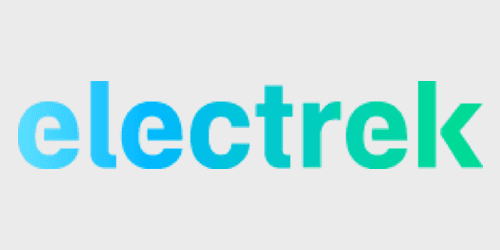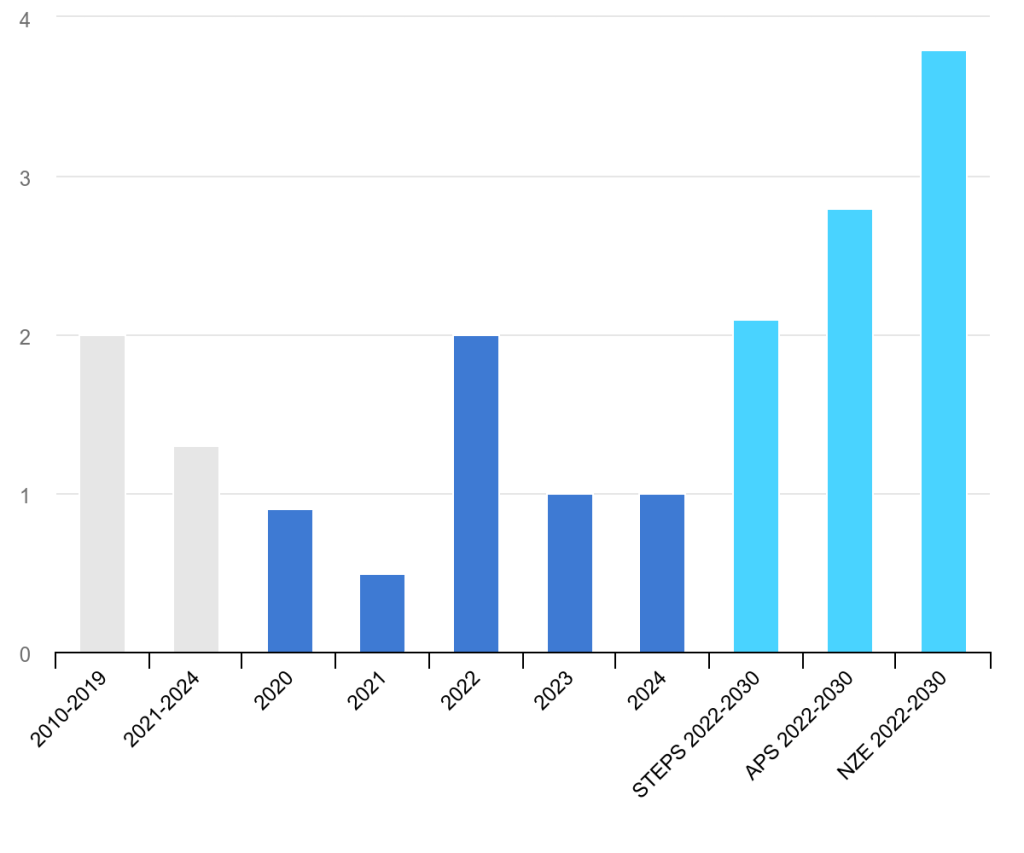
Faster progress on energy efficiency is crucial if we’re going to meet the global 2030 goal, but a year after countries pledged at COP28 to double energy efficiency improvements by 2030, the International Energy Agency (IEA) says we’re still falling short.
The latest report from the IEA, “Energy Efficiency 2024,” shows that global primary energy intensity – a key measure of efficiency – will improve by only about 1% in 2024. This is the same rate as in 2023 and around half of the average rate between 2010 and 2019. That’s not enough; we need to hit a 4% improvement by 2030 to stay on track.

Energy efficiency is about doing more with the same amount of energy – whether it’s getting more out of our appliances or making our buildings and vehicles smarter. It means less energy use, lower emissions, and economic benefits like lower energy costs and healthier cities.
Countries have started to act. In 2024, governments representing over 70% of global energy demand have put in place new or updated efficiency policies. The EU is pushing for zero-emission buildings by 2050. China has revamped appliance standards and strengthened national efficiency targets. The US is tightening fuel standards for heavy vehicles, and Kenya made its building code mandatory for all new construction. These are solid steps, but the pace needs to pick up.
The report also pointed out that efficient technologies such as heat pumps and EVs are becoming more widespread, but more investment is needed. In 2024, energy efficiency investment grew by 4%, reaching a record $660 billion.
The good news is that efficient technologies often save money over their lifetimes, and they don’t necessarily cost more upfront. For instance, top-of-the-line air conditioners can save up to 40% in total costs compared to inefficient models.
Global energy think tank Ember’s director of global insights, Dave Jones, said, “At COP28, renewables and efficiency were put center stage of the energy transition, and while renewables are performing well, efficiency is still languishing backstage. Energy efficiency has such a vital role to cut bills, cut waste, and cut fossil fuel use.”
Ember’s analysis shows that tripling renewables and doubling the rate of efficiency improvements would deliver 85% of the cuts in unabated fossil fuels required by 2030.

Read more: Seriously good cold-climate heat pumps are headed to the US market
If you live in an area that has frequent natural disaster events, and are interested in making your home more resilient to power outages, consider going solar and adding a battery storage system. To make sure you find a trusted, reliable solar installer near you that offers competitive pricing, check out EnergySage, a free service that makes it easy for you to go solar. They have hundreds of pre-vetted solar installers competing for your business, ensuring you get high quality solutions and save 20-30% compared to going it alone. Plus, it’s free to use and you won’t get sales calls until you select an installer and share your phone number with them.
Your personalized solar quotes are easy to compare online and you’ll get access to unbiased Energy Advisers to help you every step of the way. Get started here. –trusted affiliate link*
FTC: We use income earning auto affiliate links. More.





Comments